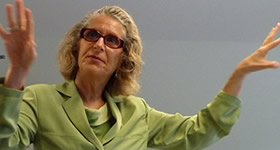While going through some old files, I encountered one of my newsyletters (the original print version – before it was electronic): July 2004 – devoted to social justice. That was 8 years ago. Things haven’t changed much and I think that’s sad. So here goes…July 2004 revisted…
I’m concerned about the growing disparity between the haves and the have-nots in America. And for me, that’s a justice issue. I believe that progressive public policy is co-opted each day. And that, too, is a social justice issue.
I see rampant social injustice – and that breeds a sense of hopelessness. But I know that you and I can make a difference – through social change philanthropy.
What is social change philanthropy?
Social change philanthropy works by changing the systems (public policy, societal mores, institutional biases) that support social injustice. I believe that if we gave more money to social change philanthropy, we could produce social justice – and we wouldn’t need so much charity to redress social ills.
As Tracy Gary and Melissa Kohner explain in Inspired Philanthropy: Creating a Giving Plan, “traditional philanthropy is based on responding to, treating and managing the consequences of life in a society with a capital-based economy.”
Social change philanthropy, on the other hand, “analyzes and responds more to cause than effect…. Progressive philanthropy srives to fund work that is proactive rather than reactive. Progressive philanthropy’s investment lies in supporting and facilitating change, challenging the assumptions that economic and social inequities are somehow unavoidable as the price of progress or prosperity.”
“You have to take power,” said American abolitionist Frederick Douglass, the son of slaves. “No one gives it.”
Social change philanthropy is about organizing and activism. It’s about engagling all members of our society in dialogue and action.
Social change philanthropy and activism ensure that people who are typically ignored and disregarded have a seat at the table. By sharing power, we can hold all our institutions – from governments to corporations to nonprofits – and society itself responsible for social justice.
A seat at the table…justice…I’m reminded of the old saying about “give a person a fish or teach her to fish.” But you have to give her a place to fish from. It’s not good enough to teach people to fish. People need a spot on the river to fish from.
Social Injustice in the U.S. arises because of choices made by you and me as voters…choices made by elected officials…corporations…and other institutions. Yes, there are individuals and institutions that fight against injustice and promote social justice. But not enough.
Fighting against social injustice – and promoting social justice – is a progressive act. Progressives challenge established systems – and people naturally resist change.
What I find ironic is that those of us who work and volunteer in philanthropy often collude with injustice. We want to raise more money for good causes … so we focus on big donors and recruit well-connected big moneyed people to our boards. That’s a bit unjust. That’s a bit limited. That’s really focusing on privilege…and much of privilege is unearned. Read “Philanthropy’s Moral Dilemma,” posted on my homepage.
Do we speak out? Do we ruffle feathers, albeit carefully and graciously? How many times have you heard someone in your organization (or on your board say), “Let’s not rock the boat. We shouldn’t speak out about that public policy issue because some of our donors won’t like it.” Maybe some of your board members won’t like it either.
Susan B. Anthony once said, “Cautious, careful people, always casting about to preserve their reputations…can never bring about a reform. Those who are really in earnest must be willing to be anything or nothing in the world’s estimation, and publicly avow their sympathies with despised and persecuted ideas and their advocates, and bear the consequences.”
Think about it.

